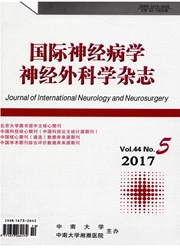

 中文摘要:
中文摘要:
目的探讨帕金森病(PD)患者道德判断功能及其神经机制。方法选取诊断明确的原发性PD患者(PD组)40例以及与其人口学资料相匹配的健康对照(HC组)40例作为研究对象,采用汉译的Joshua D.Greene编写的道德两难问卷,进行道德两难情境决策的实验。结果 PD组在道德判断"个人情感的"情境中做出愿意(功利主义倾向)选择的概率(0.40±0.19)显著高于HC组(0.32±0.11),差异有统计学意义(t=2.244,P〈0.05)。而两组在"非个人情感的"和"道德无关的"情境中做出愿意选择的概率,差异则均无统计学意义(P〉0.05)。结论 PD患者在"个人情感的"道德判断中高度倾向于功利主义选择,推测与其额叶-基底节环路异常有关。
 英文摘要:
英文摘要:
Objective To investigate the function of moral judgment and its neural mechanism in patients with Parkinson's disease( PD). Methods A total of 40 patients with a confirmed diagnosis of idiopathic PD were enrolled as PD group,and 40 healthy controls matched for demographic data were enrolled as HC group. The Chinese version of the moral dilemma questionnaire developed by Joshua D. Greene was applied for the experiment of situation decision-making in moral dilemmas. Results On personal moral scenarios,the PD group had a significant higher probability of "yes"response( a utilitarian tendency) than the HC group( 0. 40 ± 0. 1 vs. 0. 32 ±0. 11; t = 2. 244,P 〈0. 05). However,on impersonal moral and non-moral scenarios,the probability of"yes"response did not differ significantly between the two groups( P 〉0. 05). Conclusions PD patients are highly inclined to make utilitarian on personal moral scenarios,which may be related to the abnormality in the frontal lobe-basal ganglia loop.
 同期刊论文项目
同期刊论文项目
 同项目期刊论文
同项目期刊论文
 Evidence for progressive brain abnormalities in early schizophrenia: A cross-sectional structural an
Evidence for progressive brain abnormalities in early schizophrenia: A cross-sectional structural an Theory-of-mind understanding and theory-of-mind use in unaffected first-degree relatives of schizoph
Theory-of-mind understanding and theory-of-mind use in unaffected first-degree relatives of schizoph Cognitive function in Chinese prostate cancer patients on androgen-deprivation therapy: A cross-sect
Cognitive function in Chinese prostate cancer patients on androgen-deprivation therapy: A cross-sect Theory-of-mind use in remitted schizophrenia patients The role of inhibition and perspective-switchi
Theory-of-mind use in remitted schizophrenia patients The role of inhibition and perspective-switchi Dissociation of decision making under ambiguity and decision makingunder risk: A neurocognitive endo
Dissociation of decision making under ambiguity and decision makingunder risk: A neurocognitive endo Selective impairment of attention networks in breast cancer patients receiving chemotherapy treatmen
Selective impairment of attention networks in breast cancer patients receiving chemotherapy treatmen Dissociation of decision making under ambiguity and decision making under risk: A neurocognitive end
Dissociation of decision making under ambiguity and decision making under risk: A neurocognitive end Trait-related decision making impairment in obsessivecompulsive disorder: evidence from decision mak
Trait-related decision making impairment in obsessivecompulsive disorder: evidence from decision mak Dissociation of Neural Substrates of Response Inhibitionto Negative Information between Implicit and
Dissociation of Neural Substrates of Response Inhibitionto Negative Information between Implicit and Selective impairment of attention networks in breast cancerpatients receiving chemotherapy treatment
Selective impairment of attention networks in breast cancerpatients receiving chemotherapy treatment Modul- ation of interhemispheric functional coordination in electroconvulsive therapy for depression
Modul- ation of interhemispheric functional coordination in electroconvulsive therapy for depression 期刊信息
期刊信息
